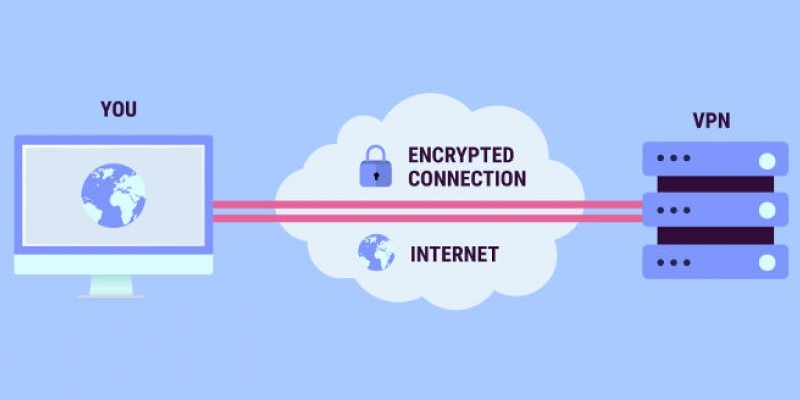
Maintaining a high level of cyber security has become an important part of running a successful business. Having strong cyber security policies and information security awareness is required to protect your intellectual property and client data from malicious hackers.
One of the most effective methods for improving information security is to use a Virtual Private Network (VPN). A VPN adds additional layers of privacy and security to your computer’s connections with other networks — making it much more difficult for hackers to identify and compromise your computer network. This article will take a closer look at virtual private networks and the ways that they can be used to improve your businesses information security. We’ll help you decide if VPNs really are the light at the end of the tunnel for businesses interested in achieving a high level of cyber security.
What is a virtual private network?
A virtual private network acts like an intermediary between your network and the outside world. Instead of connecting directly with other public and private networks, your computers will send and receive data through the VPN. When you connect to other networks via a VPN, your connections take on the characteristics of the VPN, including its IP address, location and server details. Your businesses real server details remain hidden from the outside world — greatly improving your businesses security and privacy. Most VPNs consist of servers in a variety of geographical locations. If you wish, you can tell the VPN provider that you want to make connections via a server in a specific location. Your business can also choose from different IP addresses and other server details. The best part of using a VPN is that all data between your network and the VPN is highly encrypted. No one can see what you are sending to the VPN and no one other than the VPN can see which networks you connect to. That means your ISP, the government, and hackers will find it much more difficult to track your businesses interaction with other networks.
How can a VPN protect your business?
The key benefits of using a VPN include: ISPs and governments can no longer monitor your business Under normal circumstances, your ISP and the government can monitor the connections that your business makes with other networks. This a major privacy concern because other organisations can see the websites and networks that you are working with. When you use a VPN, they can only see details of your initial connection with the VPN. Data encryption protects you against cyber criminals Because all of the data that is sent and received via the VPN is encrypted, you will gain additional level of protection against cyber criminals. If they manage to intercept your connection, they will only see encrypted data being sent to the VPN. They won’t see which networks you are connecting to or what information you are working with. This extra level of encryption can be particularly valuable if your employees sometimes work remotely. It keeps your data safe even if your employees are using a WiFi connection in a public space. Most VPNs use one of the following protocols for network encryption:
- Internet Protocol Security Protocol (IPsec) A very strong set of security tools with excellent security encryption algorithms and authentication systems. It uses two encryption modes to protect both the header, packets, and payload.
- PPTP/MPPEDeveloped by a US consortium, PPTP supports uses Microsoft Point-to-Point Encryption (MPPE) to encrypt connection data. It provides up to 128-bit encryption.
- L2TP/IPsec This method combines the security of IPSEC with the tunnelling of Layer 2 Tunnelling Protocol (L2TP).
Prevent unknown entities from accessing your network Because most of the data coming into your servers is going through the VPN, it is easier to identify and restrict unknown IP addresses. Your firewalls can be configured to spot non-VPN data and determine if it is a threat — stopping hackers dead in their tracks. Improved data integrityIn addition to encrypting your data, some VPNs can help you verify the data has not been changed while in transit. A software platform like IPSEC has the ability to check the integrity of a packet after it has been received. If the program believes the packet has been tampered with, it is dropped before it can reach your computer network. VPN software can also verify the source that sent the data to your server. Data tunnelling and traffic flow confidentiality Data tunnelling encapsulates each packet of data inside of another packet before sending it over the network. This adds an additional layer of anonymity and data security to your communications. Advanced authentication toolsVPNs have highly secure authentication tools. These tools help to ensure that only your employees can access the network to send or receive data. Each computer in your business must be specifically configured to use the VPN, which makes it more difficult for hackers to gain access to your network.
About Yellow Room Learning
Yellow Room Learning is a leading provider of cyber security training. Our team can help your business by training staff to have better information security awareness and cyber security awareness. Contact us today to learn more!
- Log in to post comments
